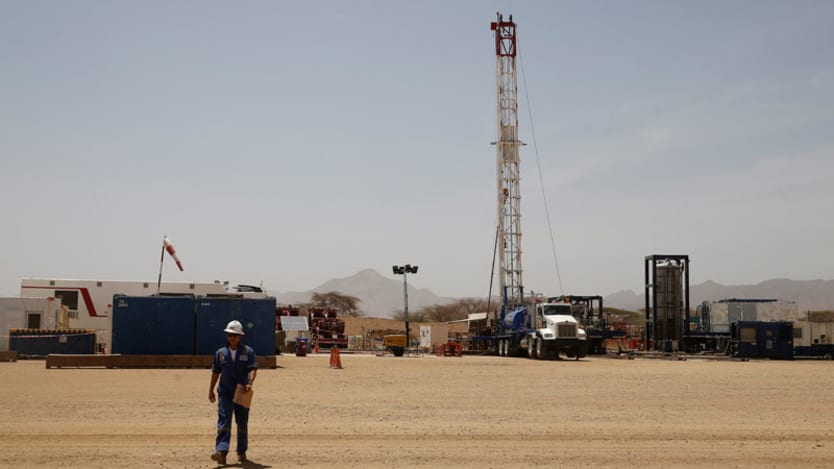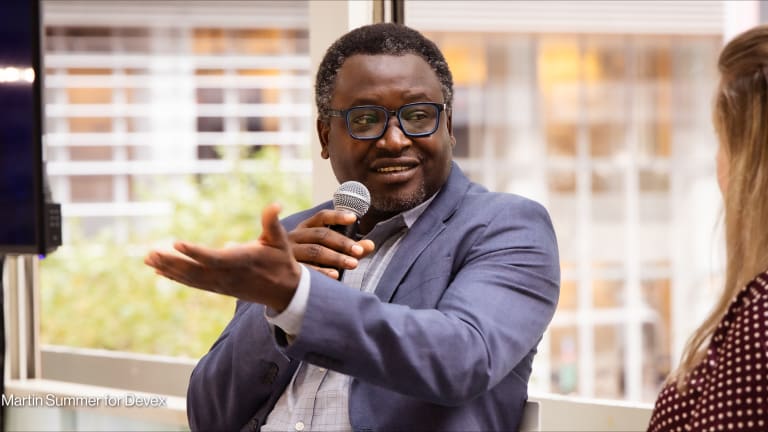
NAIROBI — Stronger community engagement is needed for oil revenues to bring sustainable development to northwestern Kenya, civil society leaders said during a panel discussion in Nairobi this week.
In 2012, the London-based Tullow Oil discovered oil deposits in the Turkana region that could generate up to $1.2 billion in revenue for the Kenyan government — funds that could be put toward development.
“We need to manage our expectations around what these oil revenues will really look like.”
— Charles Wanguhu, coordinator, Kenya Civil Society Platform on Oil and GasThough production is currently limited pending the construction of a pipeline to the coast, the windfalls have the potential to transform the region. Turkana County, one of the poorest in the nation, is set to receive 20% of the revenues allocated to the national government, and the communities around the oil wells would receive 5%, as outlined in a national petroleum law signed this year.
The company has also funded community projects in Turkana, including building a hospital and classrooms.
But what some call inadequate community engagement by the government and company in recent years, as well as a lack of transparency surrounding transactions, has left doubt as to whether the oil wealth will lead to wide-ranged improvements in the lives of the people of Turkana.
In 2017, the United Nations Development Programme and partners published a report outlining the ways in which the oil and gas sector could contribute to nations reaching the Sustainable Development Goals.
It is an unlikely partner. The report notes that “oil and gas development has historically contributed to some of the challenges that the SDGs seek to address — climate change and environmental degradation, population displacement, economic and social inequality ... corruption ... health problems,” and more.
More from Kenya:
► A quest for refugee integration in Kenya
► Q&A: 'Global gag rule' hits Kenya's largest reproductive health organization
► In Kenya's largest slum, the World Bank battles cartels for control of electricity
Transparent community engagement and consent plays a key role in the roadmap outlined in the report. “By engaging in a collaborative process with communities to develop [agreements] tailored to their specific local contexts ... companies can ensure local communities benefit from oil and gas projects,” it said.
But according to the panelists, this has been lacking in Kenya. A key point of contention is access to information which would help the community take ownership over decisions that impact them. Crucial documents have not been shared by the government, including the contract, environmental impact assessment, and engineering design around the pipeline.
“These [communities] are pastoralists that go from place to place, looking for pasture over different seasons. These documents could show if there will be an impact on their ability to do that,” said Charles Wanguhu, coordinator at the Kenya Civil Society Platform on Oil and Gas.
Beyond making documents publicly available, the government and company should make the information understandable to people in the community, said Ikal Angelei, executive director and founder of Friends of Lake Turkana — for example, by breaking down how the contracts relate to the use of land and water, and how the infrastructure could impact the free movement of pastoral communities and their animals.
It should also be accessible to the entire population that will be impacted, which is dispersed across a vast swath of land, she said, meaning that “we need to think about being innovative around how people get information.”
Relative to other oil-producing nations, Kenya’s reserves are small, Wanguhu said. Revenue will depend on factors including the price of oil. There is also a sizable debt from the oil exploration phase and the construction of the pipeline, which must be paid off before revenue reaches the community. “Because of this, we need to manage our expectations around what these oil revenues will really look like,” he said.
In order to protect revenues that can be used for the region’s development, the government should look at these debts and audit the funds that were spent on exploration, he said, which will be deducted from future revenues before the government receives its share.
The use of land surrounding the project has also been a contentious issue. While the national government has allocated land to the company, this has been contested in court because of the lack of community input.
“There needs to be more clarity around the issues of land — how it’s acquired, when it's acquired, for how long, for what purpose?” Angelei said.
The community should also be actively engaged in conversations about environmental protection so that once the oil dries up, Turkana residents are not left with completely degraded land, said Odenda Lumumba, chief executive officer and founder of Kenya Land Alliance.
Much of the way the community has been engaged up until this point has been after decisions are made rather than integrating them into the decision-making process, Wanguhu explained.
“We have to get it right and ensure that everyone is on board to benefit from this resource,” he said.
Both the Kenyan government and Tullow Oil were invited to participate in the panel but were unable to attend. Tullow Oil did not respond to requests for comment from Devex about the concerns raised.
Search for articles
Most Read
- 1
- 2
- 3
- 4
- 5








